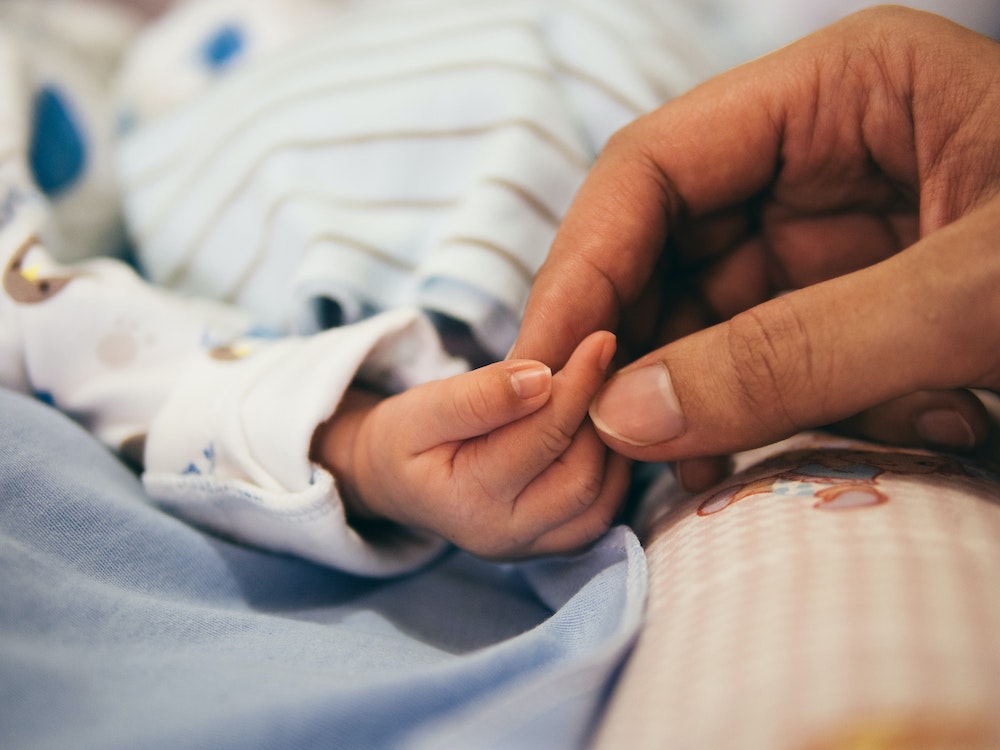- Avocado Green Mattress is tapping into rising consumer demand for organic and sustainably sourced products for babies and their Millennial parents.
- Company manufactures baby and adult-size mattresses that contain certified organic components and excludes what the company says are toxins.
- About 50 million in the U.S. buy organic, sustainably produced foods and other products and demand is outstripping supply, says the Organic Consumers Association.
Like so many other babytech companies, Avocado Green Mattress began because of a baby.
Co-founders Jeff and Alexandra D’Andrea wanted to find suitable sleeping arrangements for their new baby, but couldn’t find a mattress that reached their standards for overall sleep comfort, being environmentally friendly, and using non-toxic materials. So, in 2016, they decided to make their own bed and lie in it.
Along with fellow co-founder Mark Abrials, the D’Andreas built Avocado Green Mattress from a start-up in Hoboken, New Jersey, with an initial budget of $40,000 into a growing, certified B Corporation with about 400 workers in the U.S., a factory in California and a stake in farms — including one where thousands of sheep graze on the slopes of the Himalayas in India — providing the company with fairly sourced wool, say its founders.
The link to avocados just came naturally, said Abrials, the company’s chief marketing officer.
“When we started, we wanted to do a green product and we were going to manufacture in California,” Abrials told Karma. “We stumbled into avocado because it’s obviously green, it’s from California and of course it’s very healthy. Somehow, avocados turned into a Millennial icon or something, but it wasn’t really at the time that we picked it.”
Fueled by the millions of first-time Millennial parents, babytech is in the midst of a boom. In 2019, Forbes estimated the market at $46 billion, with investors pouring more than $500 million into babytech companies — building apps, gadgets, products and services — in the past six years.
Avocado Green Mattress is part of that growth, with its sustainable baby mattresses made from certified organic components such as cotton and latex. The company’s products are not edible, but they don’t contain pesticides and are recyclable and biodegradable, add its backers.
The company has also tapped into rising consumer demand for organic and sustainably sourced products. There are about 50 million U.S. buyers of organic, sustainably produced foods and other products and demand is outstripping supply, says the Organic Consumers Association, a non-profit advocacy group.
The worldwide organic foods and beverage market reached $91 billion in 2015 and is expected to reach $320.5 billion by 2025, according to a report from the California-based Grand View Research.
“The green space is obviously very hot because it doesn’t take a rocket scientist to see what’s happening with climate change and everything else,” Abrials said. “More companies will probably be moving into this space because that’s where customer demand is going.”
Avocado Green’s manufacturing process excludes synthetic fibers, adhesives that glue together mattress layers, and polyurethane foam — a type of plastic commonly found in furniture.
The company also does not use flame-retarding agents in its mattresses, which many businesses use to meet federal standards that products be fire-resistant. Instead, Avocado Green uses tightly woven organic wool which chars, but generally deprives fire of the oxygen it needs to burn, says Abrials. The company also frowns on using chemicals such as formaldehyde, a known carcinogen in its mattresses.
Abrials declined to say how many mattresses — which range in price from $299 for crib mattresses to $2,399 for and adult-sized King Pillow Top Mattress — Avocado Green has sold so far. The company reaches customers through online direct sales within the United States, including Alaska and Hawaii, though it is also planning to open up to two more retail outlets, in addition to its existing shops in Hoboken and Santa Monica, which it temporarily closed due to the COVID-19 pandemic.
“We have basically grown the company organically,“ Abrials said. “It’s better as a business model and it makes us think more long-term than like a start-up with an exit strategy approach.”
Though AGM sought “a comically small amount” of venture capital funding at some point, Abrials said the company founders have largely preferred to grow the business by plowing profits back into operations. Two outside investors currently hold small equity stakes — “only a few percentage points” — in the company, he said.
Though the Federal Trade Commission issues stringent guidelines for companies that wish to advertise their products as organic and brought forth a number of cases against companies making misleading or false claims in 2019, Abrials said the mattress industry would benefit from more enforcement.
“A lot of companies say their product is either natural or organic. They’ll stick seals on the side that say ‘eco’ to greenwash it,” he said. “If we had any policy support, it would be [for the government] to actually better enforce the rules that are already in place. It helps the industry and helps consumers.”
Photo by Aditya Romansa on Unsplash






















